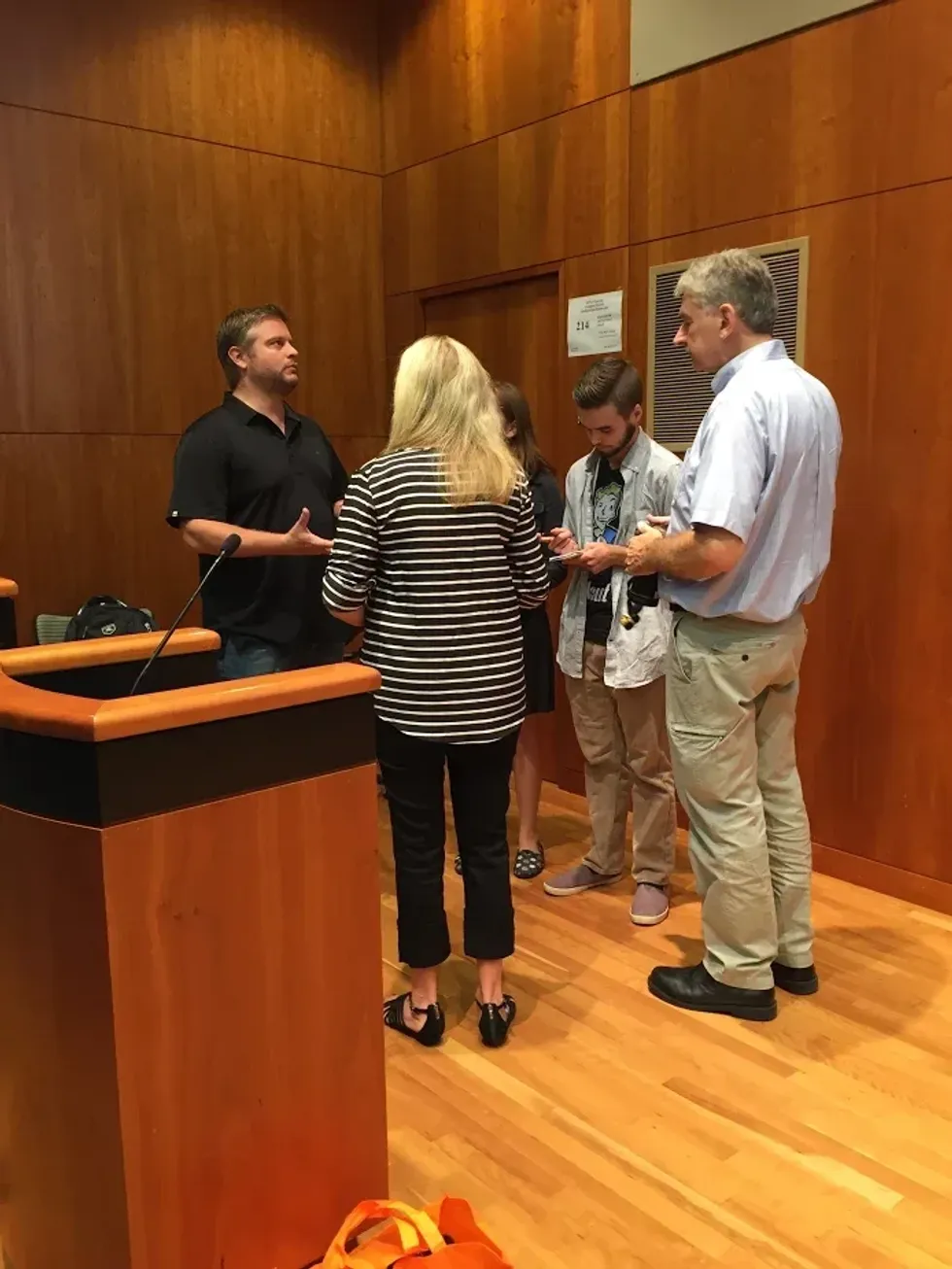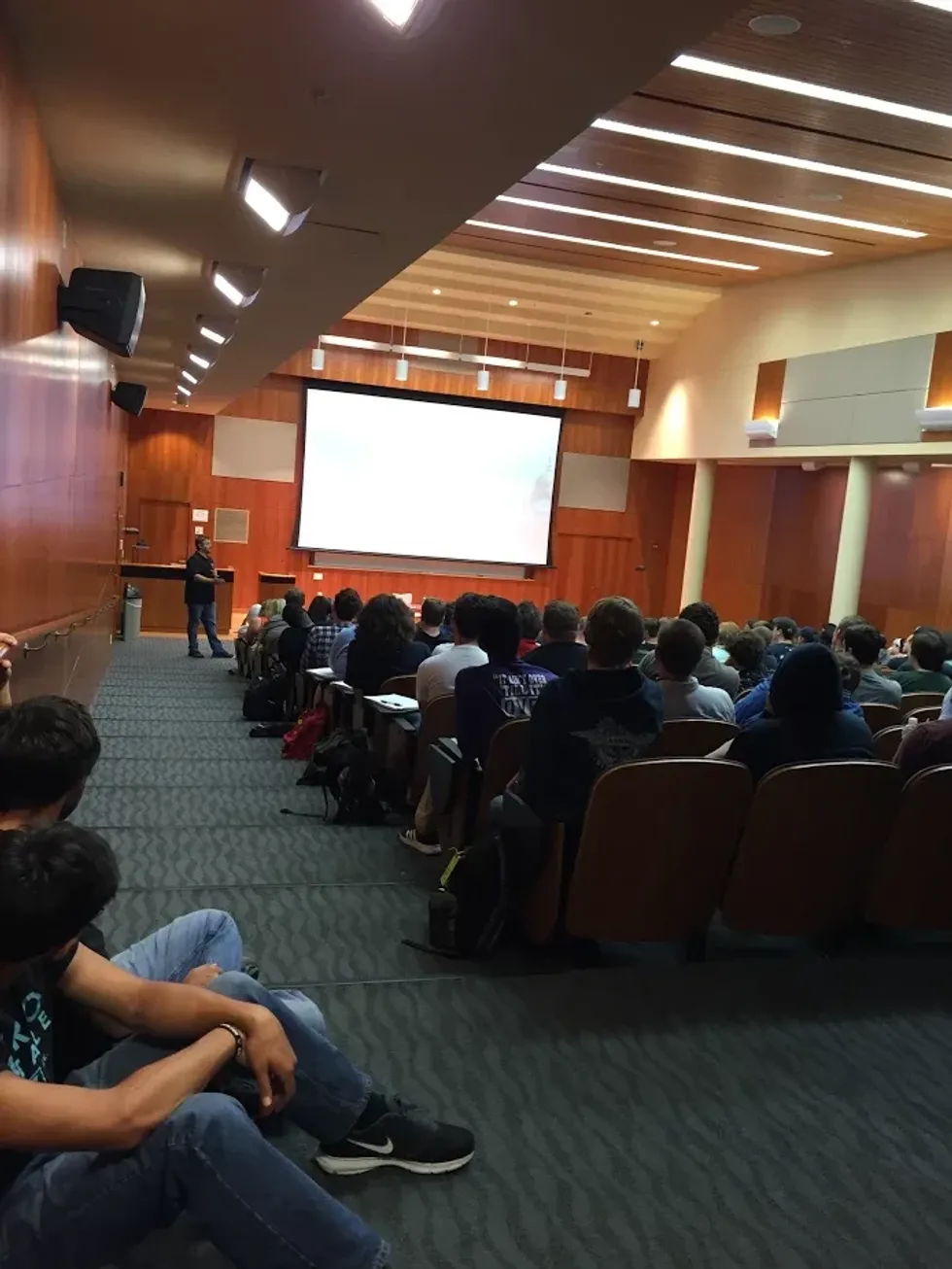In order to be successful, one should collaborate with others and know how to give and receive feedback, said video game writer, developer and producer Jeff Gardiner. Some of his most popular games are "Fallout 3," "Fallout 4," "The Elder Scrolls IV: Oblivion," and "The Elder Scrolls V: Skyrim."
Gardiner attended SUNY Oswego and majored in creative writing where he focused specifically on fiction and drama. In-class workshops provided Gardiner with the tools he would later use in his career. "I learned how to give feedback and know what feedback was most valuable to me," Gardiner said, "and as a producer, since I don't create as much, that is a very important tool for me to have."
One should have empathy for the person willing to put themselves out there and show their work, Gardiner said. Feedback should be constructive and come from a place of honest service to them rather than a place of negativity and confrontation, he added.
Gardiner is an example of the possibility to be successful in a field of writing. Video game writing might not seem like the most obvious choice for writers though. However, learning different styles of writing can help someone to better grasp whatever field he or she is in or wants to be in, Gardiner said.
“Drama was probably the most applicable to what I’m doing because you are writing screenplays, “Gardiner said. “The stories are there, but they’re not published as a story; they’re published as a game,” he added. He also learned about how to see the context and subtext within writing and find the reasoning behind why characters are the way they are. This could also help with figuring out what characters need to be further developed.
Having taken multiple writing classes helped with the production stage of development. The fiction course at Oswego helped with figuring out the setting and themes, Gardiner said. The poetry course showed how creative barriers can ultimately force real progress, he added.
Gardiner continues to use what he learned in college in his professional life. There are no critiques in the beginning brainstorming sessions so people are more comfortable with voicing their ideas, he said. During the production process for his video games, Gardiner and his team cycle through working in a feedback room, making adjustments, and repeating the process until the final product is complete, he added.
“You have to repeat important information three times,” Gardiner said. When playing the video games through the production stages, it can be easy to miss some important pieces of information and not know where you’re at in a story, he added. This is why repetition is crucial for the process.
Real life experiences are also useful when it comes to writing and developing video games. If you just immerse yourself in video games, you’re only learning from those games, whether they’re well-written or not, Gardiner said. Reading and exposing yourself to other outside sources can inspire video game stories and development pieces. Reading things like "The Road" by Cormac McCarthy influenced a lot of creative decisions about what to do with "Fallout 3," Gardiner added.
No one wants to work with inflexible people, Gardiner said. “Sometimes people don’t know what they’re doing because they don’t understand what we’re asking them to make,” Gardiner added. This is why it’s important for the entire team to know what’s going on and how to communicate with each other. There’s continuous collaboration between the writers of video games. People should be inspired by “the culture of the studio,” Gardiner added, including the art, design, and code going on around everyone.
“You have to be able to collaborate with and respect others,” said student Jarred Lyndaker, who attended Gardiner’s lecture and an intimate dinner with him. “You get out what you put in,” Lyndaker added.
Students were able to learn about the ins and outs and the business and how to break in, said professor Juliet Giglio, who coordinated Gardiner’s lecture. Specifically, students learned that constant feedback and willingness to work with others are two keys to success. “He’s a successful video game writer,” Giglio said about Gardiner, which is why she invited him to come speak at the college. Also, video game writing provides huge opportunities. “It’s a huge market for students who are looking to write in the future and get paid for it,” she added.
Gardiner addressed SUNY Oswego students Monday, Sept. 12, 2016, in the Marano Auditorium. His visit taught students to hold onto what they learn in college because it can be applicable to future jobs. He also taught students how to successfully pursue careers with some key skills, like understanding feedback and having the willingness to collaborate.
























